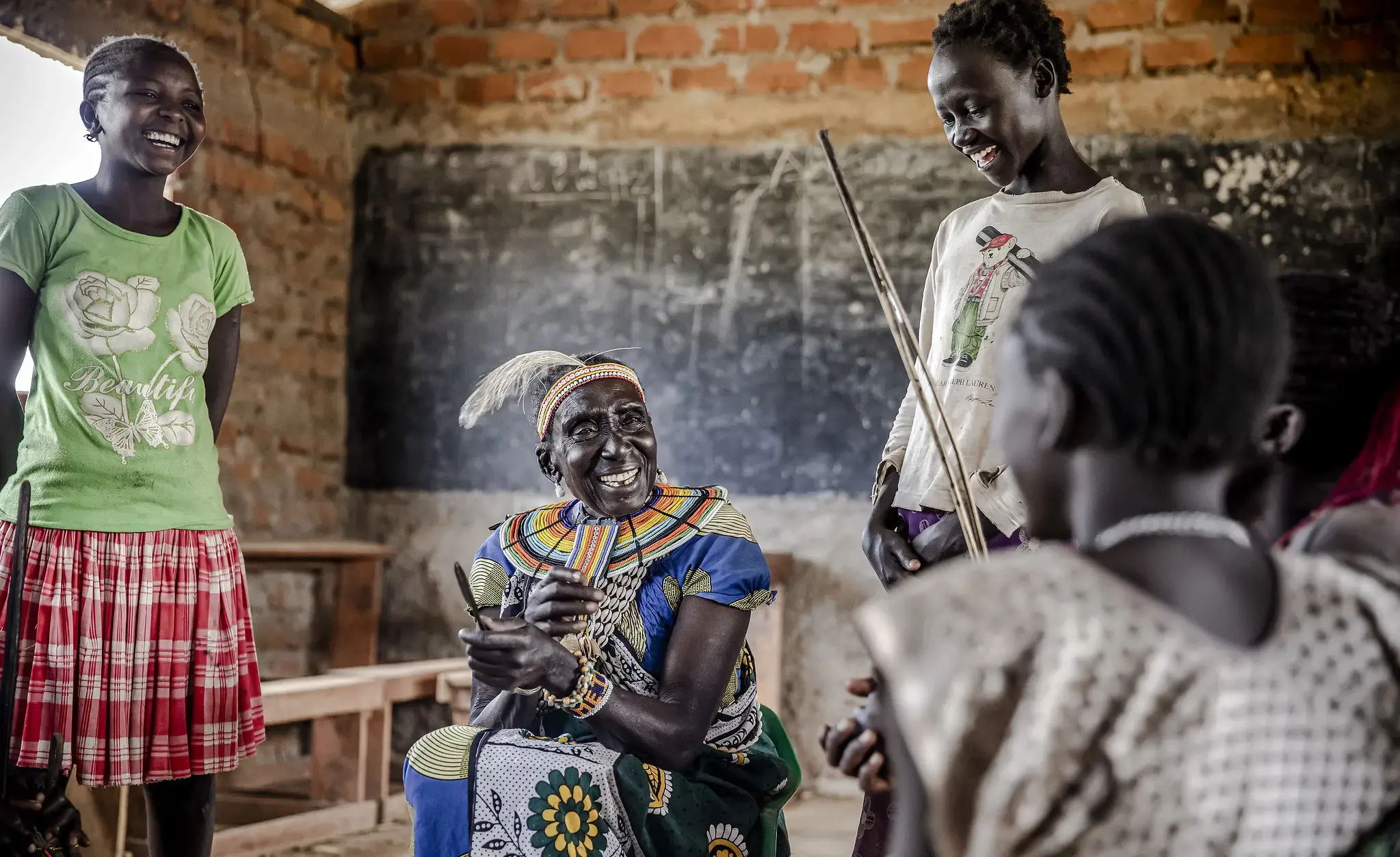Internationally recognized as a human rights violation, female genital mutilation (FGM) – the partial or total removal of the external female genitalia, or other injury to the female genital organs – is a serious reproductive health concern. It has devastating short and long-term consequences for the lives of women and girls. The practice touches on a range of issues, including reproductive health and rights, gender equality and women's empowerment as well as adolescent reproductive health.
Health consequences of FGM include excessive bleeding, pain, potential spread of diseases, childbirth complications (e.g. obstructed labour), obstetric complications, retention of menstrual blood, development of fistulas and death. There are also psychological impacts such as trauma, emotional effects, depression, stigmatization and at times, domestic violence. Sexual malfunction, painful intercourse, decreased sexual satisfaction, fear of intercourse and lack of enjoyment were reported to be some of the sexual effects of FGM.
In addition, FGM compromises women and girls developing the capacity to emancipate themselves. Some of the notable impacts of FGM include increased school drop-out rates after cutting, frequent absenteeism from school, increased rates of early or child marriages or forced adulthood, retardation of women’s economic development, and increased medical expenses and related costs for the family. All of this has ensured the continued insubordination of women and girls and their increased dependency, leading to less productivity. All these impacts have adverse effects on the quality of life of women and girls in particular and the community in general.
FGM: frequently asked questions
Through the Sustainable Development Goals, the world made a strong commitment to end female genital mutilation (FGM) by 2030. The fight to end FGM is at a tipping point, and undeniably we have made progress with the ambitious regional End Cross-border Female Genital Mutilation Action Plan in our countries.
Context in East and Southern Africa
FGM is typically performed on girls under 15 years old, but sometimes in the first weeks of life and occasionally on adult women. It is estimated that some 200 million girls and women globally have undergone some form of female genital mutilation. In Africa, women are subjected to female genital mutilation in 28 countries – this includes Eritrea, Ethiopia, Kenya, Tanzania and Uganda in East and Southern Africa.
Prior to the COVID-19 pandemic, the pace of abandonment of the harmful practice is speeding up. This was because of increased ownership, dynamism and initiative on the part of national governments and implementing partners. The campaign showed an influence on maternal and child health, education and child marriage, and the general wellbeing of women and girls.
However, a more recent study estimates an additional two million girls to be at risk of this harmful practice due to COVID-19 – a 33 per cent reduction in progress towards ending the practice. Protecting girls will take a significant push to accelerate the elimination of this often deadly practice.
UNFPA's response
UNFPA and UNICEF established the Joint Programme on the Elimination of FGM, the largest global programme to accelerate elimination of the practice and to provide care for its consequences. This programme works at the community, national, regional and global levels to raise awareness of the harms caused by female genital mutilation and to empower communities, women and girls to make the decision to abandon it.
Now in its fourth phase of implementation, spanning 2022 to 2030, the Joint Programme confirms the commitment of UNFPA and partners to end this harmful practice by 2030. Since its inception in 2008, it has helped more than 6 million girls and women receive prevention, protection and care services related to FGM. Some 45 million people in more than 34,659 communities in 15 countries with high female genital mutilation prevalence have made public declarations to abandon it. And the Joint Programme helped 17 governments set up national response mechanisms. Following intensive capacity development initiatives, there have been 1,574 cases of legal enforcement to date.
UNFPA also helps strengthen health services to prevent female genital mutilation and treat the complications it can cause. UNFPA works with civil society organizations that engage in community-led education and dialogue sessions on the health and human rights aspects of the practice. The Fund works with religious and traditional leaders to de-link female genital mutilation from religion and generate support for its abandonment. UNFPA also works with the media to foster dialogue about the practice and to change perceptions of girls who remain uncut.


